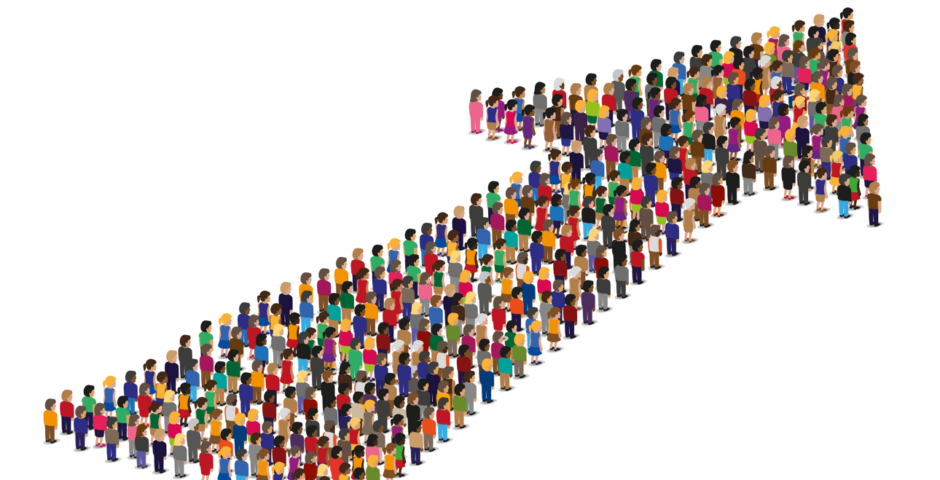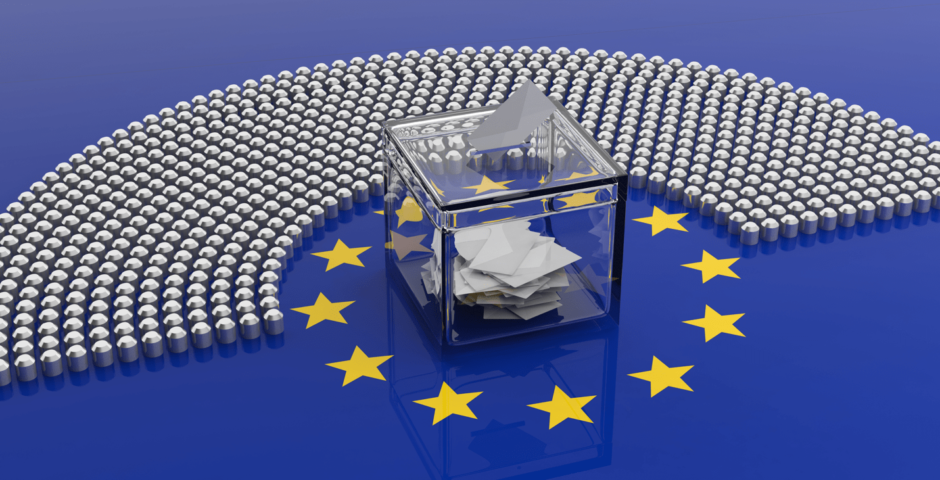Social Media: Democracy’s Number One Threat?

How social media impacts the European Parliamentary Elections.
This year (2024) is an incredibly significant year for elections, with 64 national elections taking place, representing a combined 49% of the global population. Not to mention that the European Parliament Elections will occur on top of that. If there was ever a time to become more severe with social media regulations surrounding election content, this year would be it. The world is not completely unfamiliar with the dangers that the rise of social media has brought around. In 2016, a scandalous number of disinformation campaigns took place during the American elections, which was one of the reasons for the victory of former President Donald Trump. The country risks facing a similar situation this year. Social media has been weaponised to influence elections by democratic and anti-democratic governments alike, whether within their own countries (USA, Britain, China) or with the intent of influencing foreign elections (such as China and Russia). This can quickly lead to a catastrophising mindset: can free and fair elections exist in a world where social media now dominates our lives? In short, the answer is yes, with the right measures taken. In fact, social media can have a positive effect on our democratic processes if it is used correctly. How then does the European Union (EU) intend to manage the question of social media in this upcoming electoral period, what are the risks, and what are the rewards?
How does social media impact elections?
The weaponization of social media in elections generates risks of foreign intervention as in the well-documented case of Russian involvement in both the 2016 American elections and the case of the Brexit campaign, and the use of micro-targeting techniques through advertising designed to influence the public at an individual level on social media. In 2021, the European Commission released a Study on the impact of new technologies on free and fair elections which is a collection of report analyses that lay out the different ways in which technology, including social media, can be used to influence elections and how this affects democratic processes and transparency within the region. The report is very long, but some of the highlights of the papers within it that are relevant to this article are listed below.
- In a report analysing the impact of social media microtargeting in Germany during the Parliamentary elections in 2019, microtargeting was defined as “a strategic process intended to influence voters through the direct transmission of stimuli, which are formed based on the preferences and characteristics of an individual”. This is done using voters’ online personal data (such as their online engagement) which then allows for targeted campaigning advertisements. The report found that the tactic was not carried out to its full extent and that often, the data provided by the social media platforms was not always reliable. It also found that this could be managed by being transparent with voters about data collection or giving voters more agency over their personal data.
- One report seeks to “clarify the role of social media providers and targeters as joint controllers of personal data”, using the new General Data Protection Regulation (GDPR) guidelines (the toughest data regulation law, designed to impose restrictions on organisations to protect the public’s personal data). The report explains the risks laid out by the guidelines, particularly regarding how individuals’ data is collected, while giving an overview of the targeting mechanisms used to understand the joint-controllers’ responsibility and legality. It also presents the risks laid out by the guidelines to understand the obligations implemented on joint-controllers by the GDPR.
- This report analyses how Online Political Microtargeting (OPM) is not fully deployed in Europe, though the tactic developed in the US is seen as a sort of inspiration. It notes that OPM aims to strengthen democracy by engaging more voters. However, it notes that social media platforms are in a near monopoly over the data that can be used in these OPM strategies. They also note that OPM lacks transparency and can mislead voters about party objectives. This report also concludes that the GDPR will prevent the threat of OPM and social media from growing to the height of what it has become in the US.
How does the EU plan to regulate the (mis)use of social media?
One of the biggest dangers of the use of social media in elections is the misuse of targeted political ads to influence voters, which can have an undemocratic effect on elections. In addition to the impact on transparency, this use of personal data to impact citizens’ voting tendencies is not always carried out legally. Of course, the speed at which social media has developed over the past decade has blurred the line of legality, causing the EU to play a game of catch-up in an attempt to create regulations to protect EU citizens. Studies show that the percentage of social media users globally ranges between approximately 61-66%. Social media has a vast reach across the voting population and has allowed organisations, companies, governments, etcetera, to have more access than ever to our personal data. As the modern adage goes, “If you don’t pay for the product, then you are the product”, and as most social media platforms are free this saying applies to them. The EU seeks to reduce the immoral access and use of citizens’ data, particularly in the realm of democratic institutions.
In anticipation of the upcoming elections, all three branches of the EU (the Parliament, Commission, and Council) have been concerned about preventing the misuse of social media during election campaigns. Transparency is one of the core values of the EU. There can be no democracy without transparency, which is why there has been an increased focus on targeted political advertisements within elections. The EU has made an effort to correct this by implementing data regulation systems such as the aforementioned GDPR (2018), and the Digital Services Act (2022), which seeks to prevent illegal online activities and dissuade the spread of disinformation. Therefore, on the grounds of these new data protection acts, the Parliament and Council have reached a political agreement by which a regulatory system would be implemented on the transparency of political advertising. These new rules will increase and transform the use of social media in election campaigns and attempt to inhibit damaging targeted political advertisements. For instance, by this new regulation, political adverts on the Internet will need to be labelled as such and will need to disclose who paid for them. Firms may eventually attempt to find loopholes to override these restrictive regulations, but in the meantime, they will allow citizens to use social media as a platform for information, rather than being victims of targeted political advertisements that do not serve the public’s best interests.
The benefits of social media in election campaigns
Social media can also have a lot of benefits when attracting the public’s attention during election campaigns. A Eurostat statistic demonstrates that in 2022, 96% of young people in the EU (16-29) use the Internet daily. This means that internet platforms such as social media platforms have the most potential for reaching, informing, and influencing European youth. The EU parliamentary elections are often an alienating concept to the average young EU citizen because of its complexity, and the fact that it can be difficult to understand or engage with a multi-governmental body like the EU. EU Parliamentary election turnouts have been consistently low over the past two decades, with its lowest turnout falling to 42.61% in 2014. Although there was an increase in voter turnout in 2019 (50.62%), the numbers continue to reflect a general disinterest in European politics and democratic processes. Social media has the chance to change this by spreading awareness about how individual citizens can have a direct say in the policy-making decisions that are carried out by the EU.
With the EU taking strong steps to manage the misuse of social media in political campaigns and to enforce free and fair elections, I wish to conclude with a positive anecdote. A couple of weeks ago, my younger sister who just reached the age to vote (18 in France), began to ask me questions about the European Parliament: what the elections are, and how the EU works in general. I asked her what had inspired her sudden interest, and she responded that she and her friends had been exchanging Instagram reels from the European Parliament page, noting sheepishly that “we don’t know what it means, but we definitely want to vote”. The European Parliament’s social team has adopted a strategy to create videos that align with popular trends on social media to gain traction within the Instagram algorithm. This is clearly a successful tactic, as it has, in very concrete cases such as this one, encouraged young people to open a discussion about the EU and the upcoming elections. Hopefully, thanks to the (ethical) use of social media, we can expect a higher voter turnout this year.
Dalia Michaud has a bachelor’s degree in political science and history from the University of Toronto and is currently pursuing a master’s degree in international relations at Utrecht University.
Image: Shutterstock




